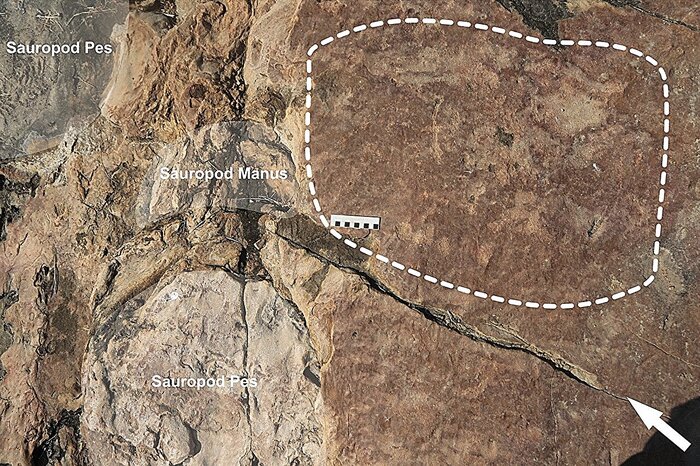Enlarge image
Microstructure of egg shells: Researchers find evidence of dinosaur mass extinction
Photo: Journal of Palaeogeography
Did the dinosaurs really die out 66 million years ago when an asteroid hit Earth?
Or was their population previously ailing?
Researchers in China have examined remains of dinosaur egg shells and found evidence that dinosaur diversity was already impaired at the end of the Cretaceous period.
The results were published in the journal Proceedings of the National Academy of Science, CNN reported.
Most information about dinosaurs at the end of the Cretaceous comes from what is now the United States, the report said.
While the image conveys a relatively large variety of dinosaurs, it is unclear whether patterns observed in North America are representative.
To fill this gap in the fossil record, researchers examined fossilized dinosaur eggs from the Shanyang Basin in central China.
Reduced biodiversity in the Cretaceous
"Our results show low biodiversity in dinosaurs during the last 2 million years of the Cretaceous," the authors write in the study.
The data would point to a decline in diversity millions of years before the Cretaceous–Paleogene boundary, which marks the transition from the Cretaceous to the Paleogene 66 million years ago.
"The catastrophic events at the end of the Cretaceous, such as the Deccan Falls and the bolide impact, likely impacted an already vulnerable ecosystem and led to the extinction of the Nonavian dinosaurs," the study states.
The eggs and eggshell fragments therefore represent the last 2 million years of the dinosaur era.
Detailed age estimates of rock layers from more than 5,000 geological samples were made using computer models, according to CNN.
The analysis found whole eggs and eggshell fragments from only three species of dinosaur, which the researchers say suggests low biodiversity over this period of time.
Still, the results would indicate persistently low dinosaur biodiversity.
"This assessment is consistent with known skeletal remains in the Shanyang Basin and surrounding basins in central China," the authors write in the study.
Nevertheless, they state: "The question of whether the biodiversity of the Nonavian dinosaurs declined before the mass extinction at the end of the Cretaceous period is still controversial."
Fossilized eggs may not be a reliable source of dinosaur diversity, paleontologist Alfio Alessandro Chiarenza of Spain's University of Vigo told CNN.
Chiarenza was not involved in the study.
According to recent research, many dinosaurs would likely have had soft-shelled eggs, which would have had a slim chance of being able to fossilize at all.
In addition, no eggs were found from many dinosaur species, even from well-known species such as the Tyrannosaurus Rex, according to Chiarenza.
"These results also contradict what appears from the egg remains and the variety of bones, teeth, and other remains found in places like Spain (and) what we know from the North American record," he wrote Chiarenza according to CNN.
"So I think these authors are misinterpreting these signals."
He remains convinced that the asteroid impact was the true cause of the dinosaurs' extinction.
an





